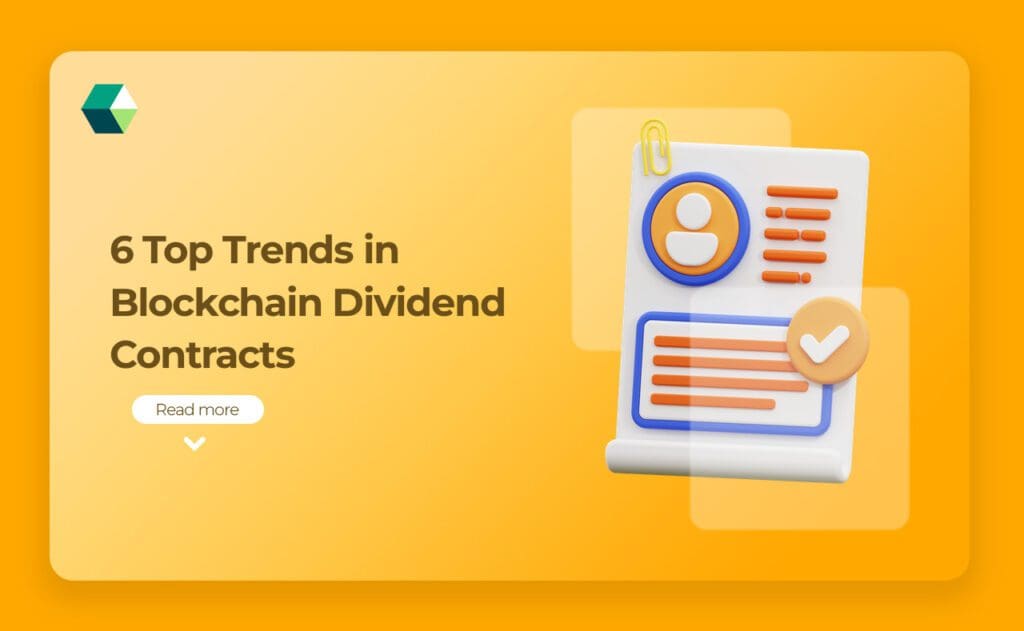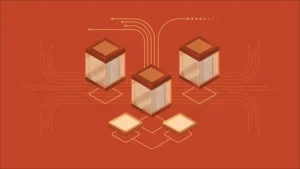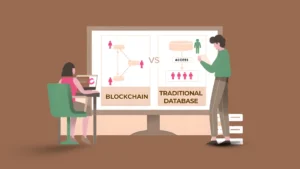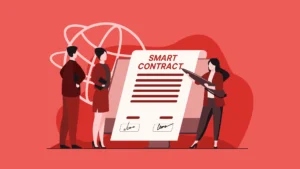
A Smart Contract Dividend Contract is a simple way for companies to automatically distribute profits to their token holders. Instead of relying on third parties, these contracts run on the blockchain and follow pre-set rules to ensure everyone gets the right amount based on how many tokens they own. This method is secure, cost-effective, and transparent, making it easier for companies to manage dividends and for token holders to receive their share without any hassle.
What Is a Dividend Contract in Smart Contracts?
A dividend contract in smart contracts automates and manages the distribution of dividends to token holders using Blockchain Technology. By coding dividend rules into smart contracts, these contracts automatically calculate and distribute token dividends based on predefined conditions, ensuring accuracy and transparency. This automation reduces manual effort and errors, while the blockchain’s public ledger ensures that all transactions are secure and verifiable. Essentially, Dividend Contracts streamline the dividend payment process, making it more efficient and reliable.
How can you Token Dividends from a Smart Contract?
To receive Token Dividends from a smart contract, you first need to hold the eligible tokens specified by the smart contract. The smart contract automatically calculates and distributes the dividends according to its programmed terms, such as payout frequency and eligibility criteria. The dividends are then transferred directly to your wallet. For a seamless experience, Smart Contract Development plays a crucial role in ensuring that the dividend distribution process is automated, accurate, and transparent.
Benefits of Token Dividends in Smart Contracts
-
Automation
Smart contracts automate the calculation and distribution of dividends, reducing manual intervention and errors.
-
Transparency
Blockchain technology ensures that all dividend transactions are recorded on a public ledger, providing clear and verifiable records.
-
Efficiency
The process is streamlined, minimizing administrative overhead and speeding up Dividend Payments.
-
Security
Transactions are executed in a tamper-proof environment, ensuring that dividends are distributed accurately and securely.
-
Flexibility
Smart contracts can be programmed with specific rules and conditions, allowing for customized dividend distribution strategies.
How Are Dividends Paid Through Smart Contracts?
Dividends are paid through Smart Contracts by first holding eligible tokens as defined by the contract. Smart Contract Developers design and code the smart contract to automatically calculate and distribute dividends at set intervals or upon specific conditions. The smart contract then transfers the calculated dividends directly to the holders’ wallets, with all transactions recorded on the blockchain for transparency and security. This automated process ensures accurate and efficient dividend payments while minimizing manual effort and errors. Additionally, similar to Savings Contracts Development, these automated agreements provide a structured and reliable method for distributing rewards or returns, further enhancing the efficiency of decentralized financial systems.
6 Key Trends in Blockchain Dividends
Here are six key trends in Blockchain Dividends
-
Automated Dividend Distribution
Smart contracts are increasingly used to automate dividend payments, reducing administrative overhead and ensuring timely, accurate distributions.
-
Enhanced Transparency
Blockchain technology provides a public ledger for tracking dividend payments, enhancing transparency and allowing stakeholders to verify transactions.
-
Tokenization of Dividends
Companies are using tokens to represent dividends, making it easier to distribute and trade dividend rights on decentralized platforms
-
Real-Time Payments
Advances in blockchain technology enable near-instant dividend payments, improving liquidity and reducing the waiting period for investors.
-
Customization and Flexibility
Smart contracts offer customizable dividend distribution rules, allowing companies to tailor payments based on various criteria, such as performance or holding periods.
-
Integration with DeFi
Blockchain dividends are increasingly being integrated into decentralized finance (DeFi) ecosystems, providing innovative ways to manage and invest dividends within DeFi platforms.
How Can Nadcab Labs Help with Dividend Payments?
Nadcab Labs can enhance dividend payments by developing customized smart contracts that automate and streamline dividend calculations and distributions. Their expertise in integrating blockchain technology ensures transparent and verifiable transactions, while their DeFi solutions facilitate innovative Dividend Management. Prioritizing security and compliance, Nadcab Labs also provides real-time processing to improve efficiency and liquidity. By leveraging their services, companies can achieve accurate, secure, and efficient dividend payments.







